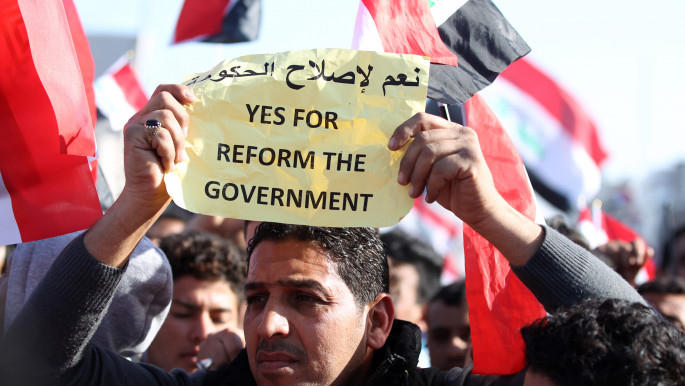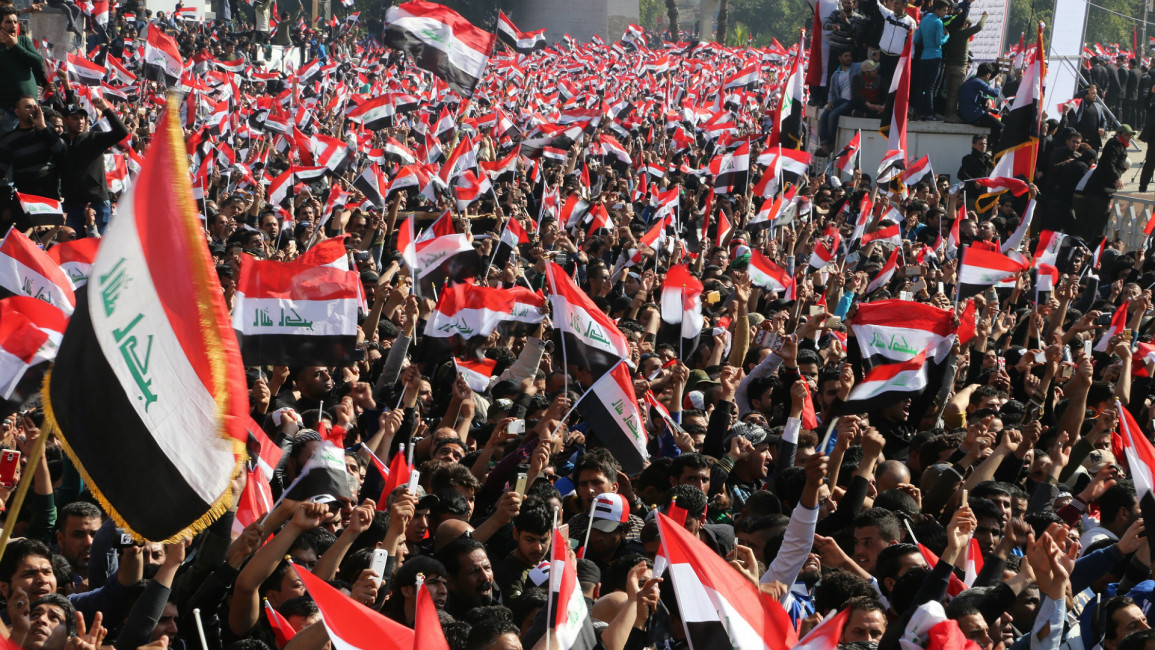Muqtada al-Sadr leads huge anti-corruption protest in Iraqi capital
Tens of thousands of Muqtada al-Sadr's supporters gathered in central Baghdad on Friday for a rally, during which the Iraqi cleric demanded the government carry out serious reforms.
"The prime minister is in a critical position after the people rose up," said Sadr, addressing the huge gathering at Tahrir Square.
Prime Minister Haider al-Abadi promised to carry out reforms in response to a wave of protests demanding better services and an end to corruption that swept Baghdad and the south last year.
But he has been slow to deliver on the reform pledges, due in part to opposition from within the government and his own party.
"Today, he should carry out serious, not cosmetic, reforms," Sadr told his supporters.
"No, no, to corruption," and "The people are all with you, Sayed Muqtada," the flag-waving crowd chanted as al-Sadr gave a speech.
 |
'No, no, to corruption,' and 'The people are all with you, Sayed Muqtada,' the flag-waving crowd chanted as al-Sadr gave a speech |  |
 |
|
| Iraq has been grappling with egregious corruption [Getty] |
The Shia cleric, who has repeatedly announced he was quitting politics or threatened to do so over the years, controls a large militia group called Saraya al-Salam.
As Iraq grapples with egregious corruption, officials from Sadr's own political movement have been accused of being some of the worst offenders, but the cleric has recently tried to distance himself from the Sadrist bloc.
On Friday, he claimed that "none of the government members represent" him.
While Sadr has publicly criticised Abadi over the pace of reforms and his foreign policy, he has been generally more supportive of the premier than many other Shia factions in government.



